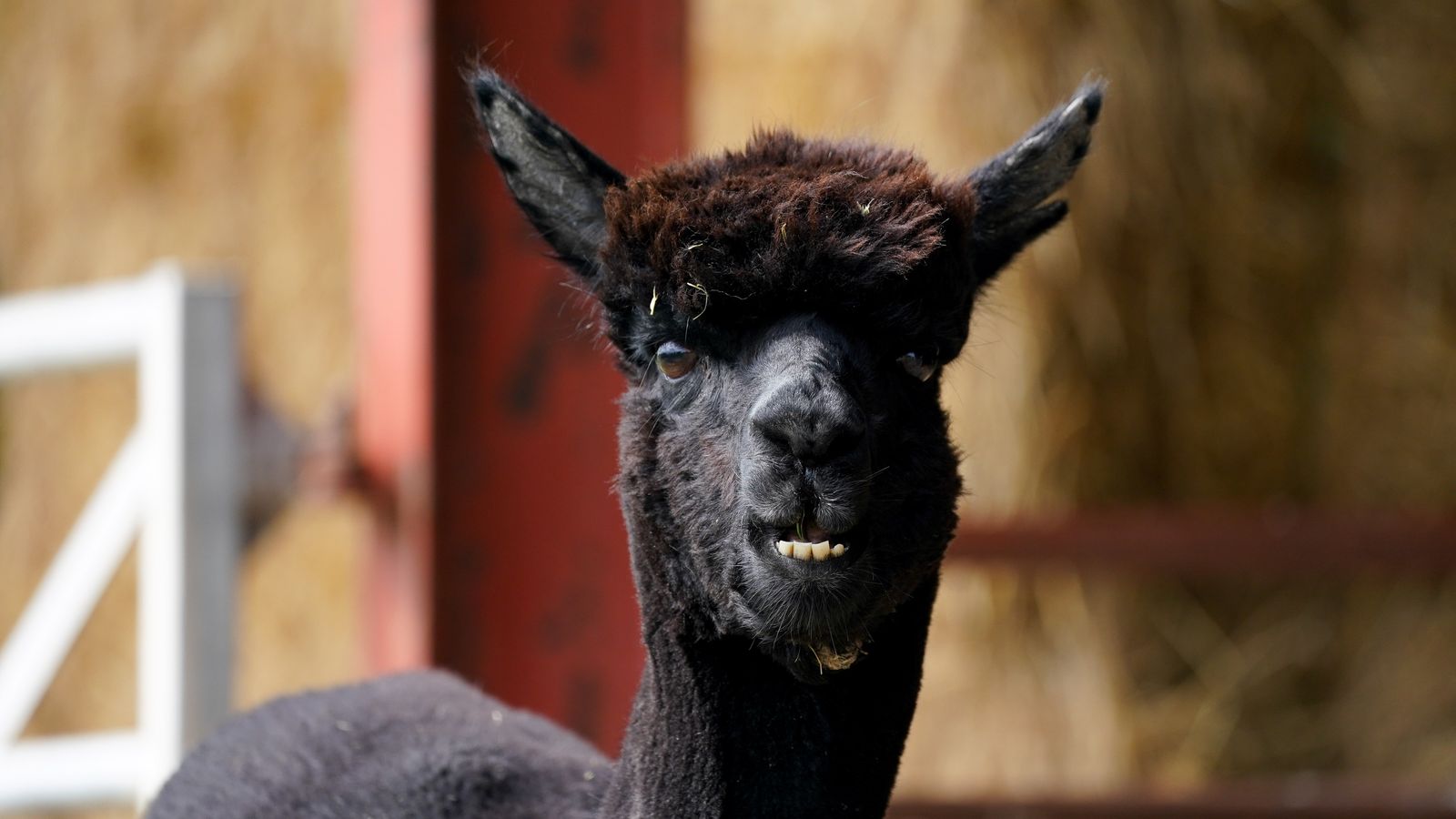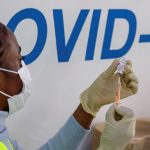Post-mortem tests on Geronimo the alpaca, who was euthanised by vets in August after testing positive for bovine tuberculosis, failed to provide conclusive findings of the animal’s health.
Geronimo was culled by government officials in August after his owner, Helen Macdonald lost a lengthy legal battle to stop the killing.
She insisted that the two previous bovine TB tests returned false positives and Geronimo should have been tested a third time or allowed to live to aid research into the disease.
The alpaca was put down after police officers and staff from the Department for Environment, Food and Rural Affairs (Defra) arrived on Ms Macdonald’s farm in South Gloucestershire on 31 August.
At the time, Defra indicated the initial post-mortem had found a “number of TB-like lesions“, but further tests would be needed.
Chief veterinary officer Christine Middlemiss said that after further tests, it was not possible to culture bacteria from tissue samples meaning that whole-genome sequencing could not be carried out.
“Due to the complexity of the disease, further testing has not enabled us to use whole-genome sequencing to try to understand how the animal became infected in the first place,” she said.
Tewkesbury stabbing: Man in court accused of murdering his neighbour and attempting to kill another
Tewkesbury stabbings: Family pay tribute to ‘loving husband and father’ Matthew Boorman who died in attack
Putting down Geronimo the alpaca is the right decision, cabinet minister says
“It is important to remember that infected animals can spread the disease to both animals and people before displaying clinical signs, which is why we take action quickly to limit the risk of the disease spreading.”
Defra said the additional bacteria culturing process carried out is not used to validate previous test results, but instead to identify which strain of the disease is present and inform decisions on testing other animals in the herd.
Dominic Dyer, who had campaigned alongside Ms Macdonald to save Geronimo, said the post-mortem examination results showed the animal did not have bovine TB.
Bovine Tuberculosis (bTB) is an infectious disease that mainly impacts cattle.
According to the government, it is one of the most significant challenges that the farming sector faces, costing taxpayers more than £100m each year.
It is caused by a bacterium which can also infect and cause disease in badgers, deer, goats, pigs, badgers, camelids (llamas and alpacas), and other mammals, including humans, under certain conditions.
The disease is detected either on farms through skin tests of cattle or in slaughterhouses through post-mortem meat inspection.
According to Defra figures, in the 12 months to March 2021, 28, 356 TB incidents were detected in England, 227 in Scotland and 10,258 in Wales.
The Animal and Plant Agency said in 2020 alone, more than 27,000 cattle had to be slaughtered to curb the spread of the disease in England.
Badgers make up a large source of the disease. Controversially, they have been culled in England since 2013 under a scheme due to last until 2025. According to The Badger Trust, 140,000 have been killed to date.
Other animals with the disease make up a much smaller proportion of those killed. According to figures from 2018, 105 camelids, six sheep, 99 goats, eight pigs and 10 deer were destroyed.
“We finally got the full post-mortem results and it’s clear this animal did not have TB,” he said.
“This case shows the level of incompetence, negligence and deceit on TB policy within Defra that goes back decades.
“Helen was a scapegoat. The poor alpaca Geronimo was killed for absolutely nothing in the most brutal disgusting way in front of the world’s media.
“This is a shameful, shameful incident when it comes to the environment policy and TB policy in this country.
“It’s about time that George Eustice took responsibility, and the prime minister firstly apologise to Helen, compensated her for all the pain and suffering she’s gone through and make sure that this never happens again.”






















